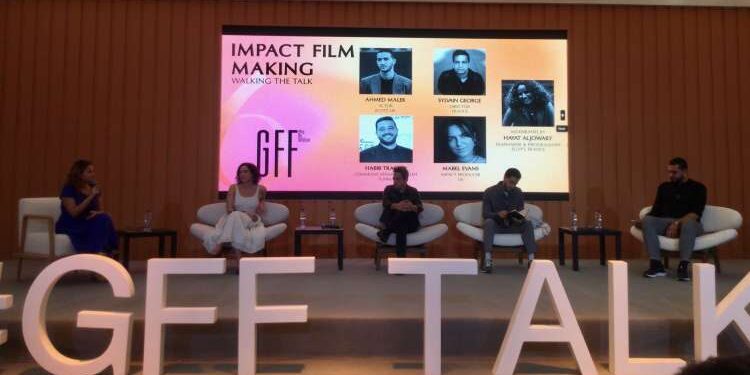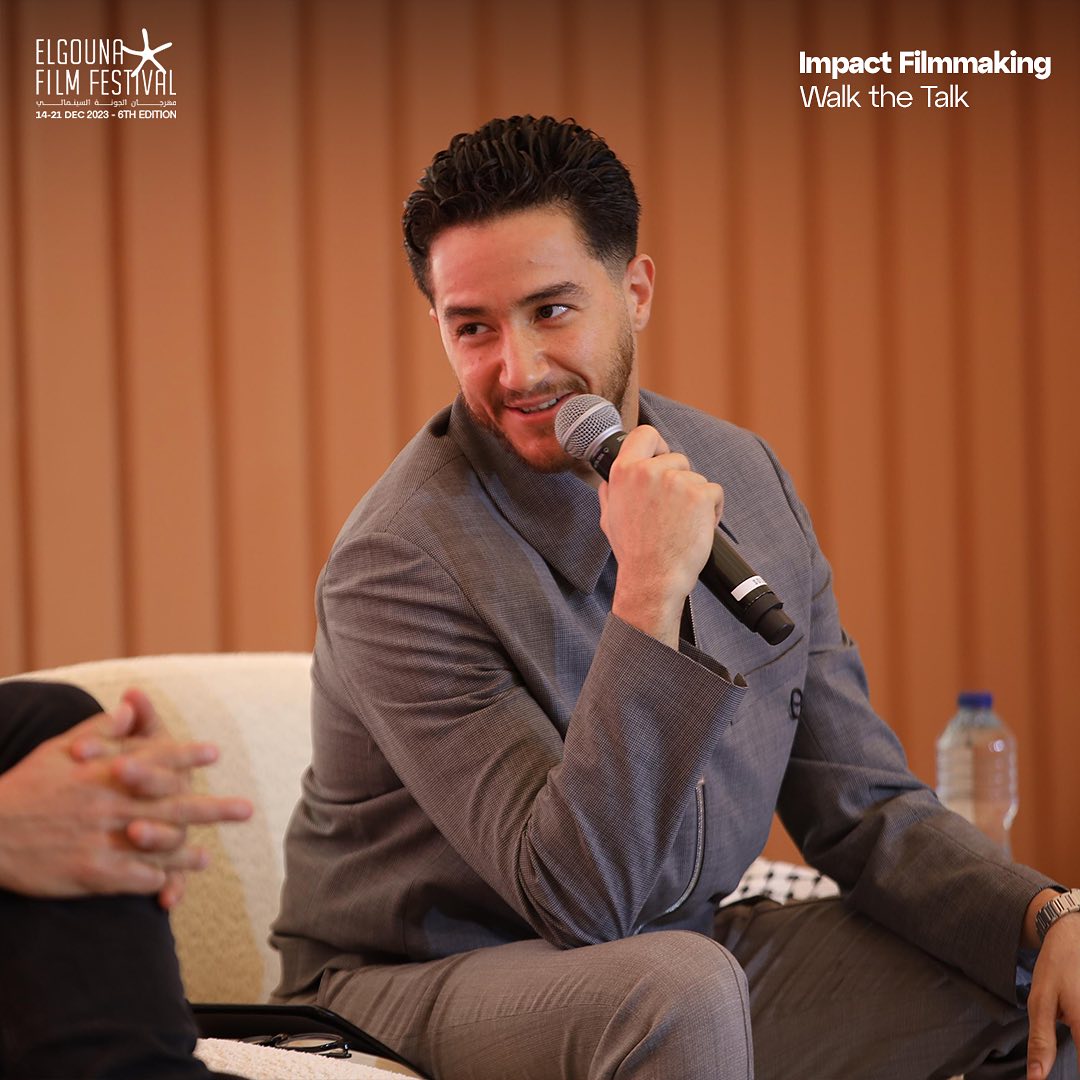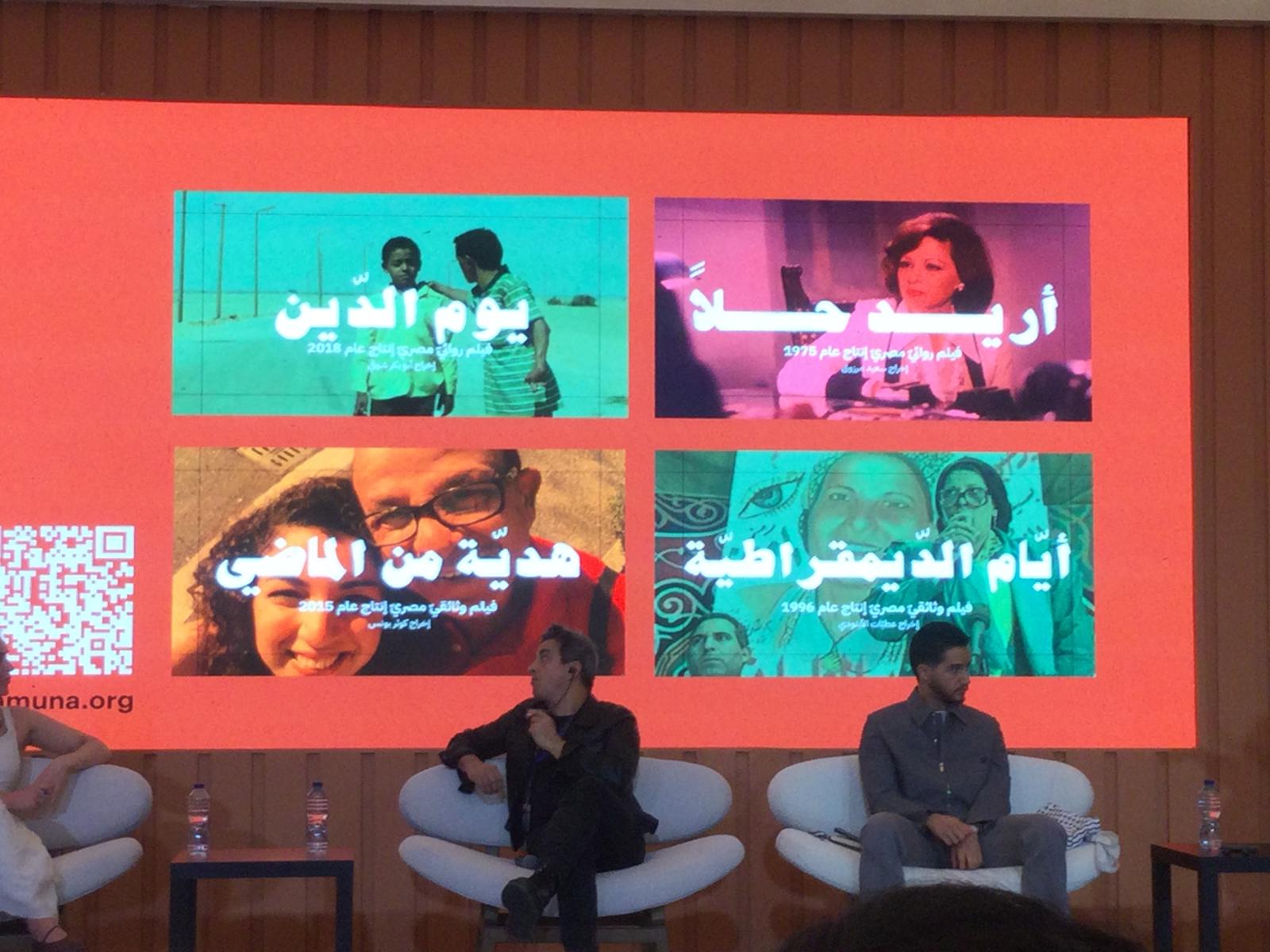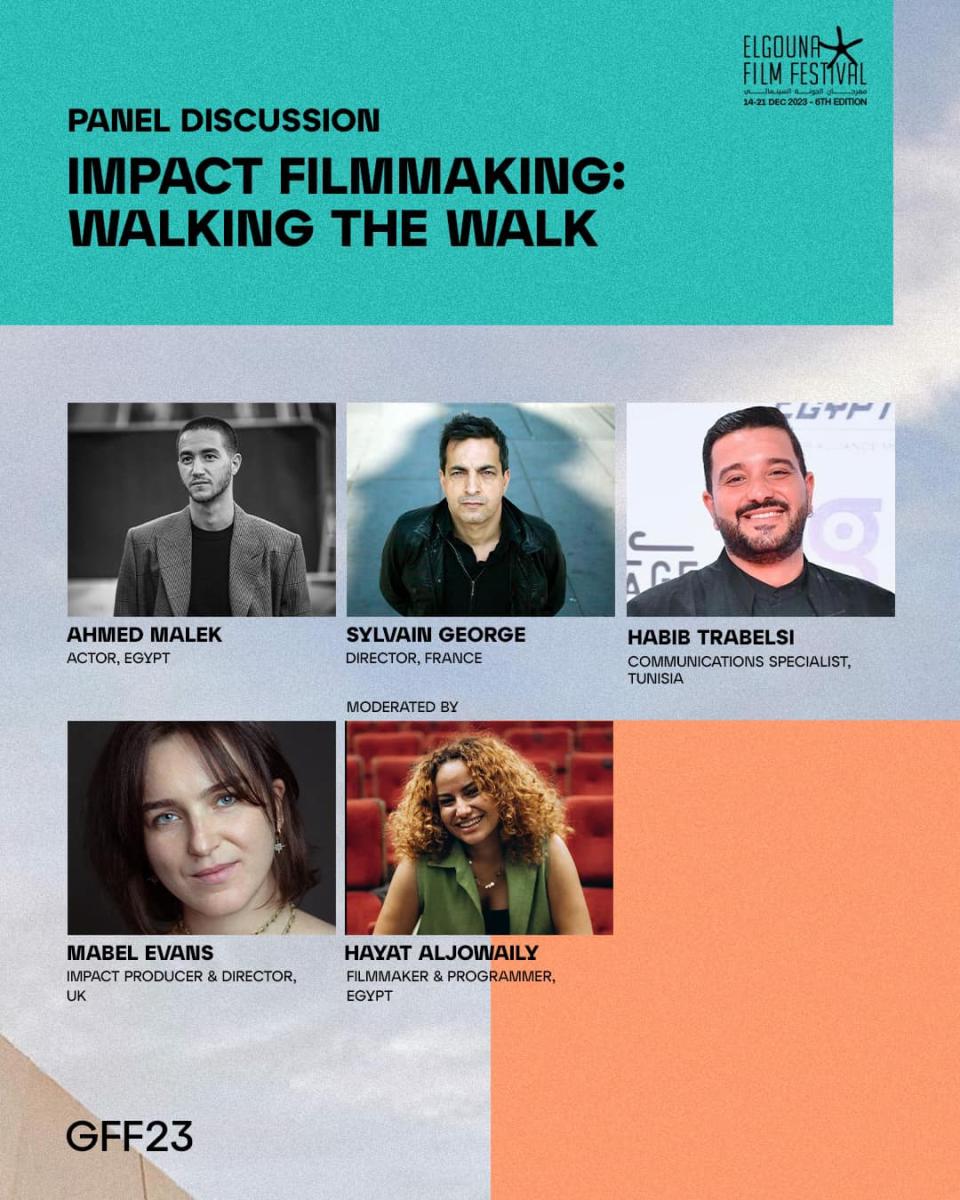The 6th edition of the El Gouna Film Festival (GFF), which took place exceptionally from December 14 to 21, 2023, was marked by a very interesting panel entitled “Impact cinema: put the words in action”.
The speakers were: Egyptian actor Ahmed Malek, the French director Sylvain Georges, the Tunisian communication specialist Habib Trabeli, the English producer Mabel Evans and the Egyptian filmmaker Hayat El Jowaily.
The session started with the screening of the short film Matar (2023) by Hassan Akkad whose main actor is Ahmed Malek, present at this panel.
Synopsis:
Matar follows the story of an asylum seeker in England who, faced with the hostile immigration system of the United Kingdom, is forced to live on the sidelines of society and depend on his bike to survive as a delivery man.
What does it mean to use cinema as a change tool?
Mabel Evans:
Part of the film team Matarwe wanted an impact on the shooting team and on the target community concerned by the film. We also wanted to demonstrate that it is absurd to want to expel the refugees who wish to work. If they want to contribute, this is an advantage for the whole country. We have launched a campaign against an anti-immigration bill. Our goal was to present refugees under a human face. As a British filmmaker, I wanted my work to have an impact on my company. The whole film team wondered how to use this film for this unfair bill and how to tell other stories that could have an impact on people. Matar Many people, delivery people, immigrants, politicians have been shown … and next year, he will go to the British Parliament. By showing a certain reality, this film could help change things.
There is also a project with theBritish Academy of Television and Cinema Arts (Bafta) to help future filmmakers to make significant impact films.
Ahmed Malek:
As an actor having embodied many characters, I consider that in the West, an emigrant character is a person with dreams, not just an emigrant. Can art change reality? As an artist, my mission is to transmit human experience and let the spectator decide. As an actor, I don’t adopt anything special when I play an emigrant. For me, it’s a human story like any other.
It was while traveling that I started to ask myself questions about my identity, a reflection that I had never undertaken in Egypt. I understood my identity by going to the West, faced with the questions and the framework which are imposed on me.
Before, we Arabs, were considered terrorists, then emigrants, and I do not know what we will become after October 7. I tried to get away from these stereotypes, and I think this is only possible by playing characters as a simply human beings. Westerners see us only as figures, not like humans. What I can do is tell them that I am a human being, even if I come from a certain region.
Sylvain Georges:
How to tell stories? How to choose them? I never considered the impact of my films. For me, taking a camera is redefining myself and defining my position in relation to the world. It is a process, a movement. I work a lot to understand what emigration is in France, focusing on the suburbs where people are discriminated against. A film is not only a distraction, but also offers a new point of view, a different angle. For me, documentaries are a way to help people understand others.
I have a film on migrants arriving from Morocco blocked in Spain. My approach is to come and share the experiences of these migrants. With this process, you can understand a lot, why and how people react. I am very open when I start a film, it evolves according to events. It is a kind of dialogue with reality and people. For me, this is the deep meaning of a film, a testimony to the life of these people.
My intention was not to make a film on migrants, but on Western rules in matters of emigration, through the gaze of these migrants. I tried to meet many people, especially those in transit and living in the street. I introduced myself, I talked about the film I wanted to make. I showed extracts from my previous films on my iPhone as examples, explaining my choices, especially that of black and white. Some immediately accepted, others not. Some returned after a year. It was important for me to spend time with them, establishing a dialogue. In places like Calais, where migrants are numerous, sometimes people refuse to participate in filming, especially those who pass quickly. I tried to spend a lot of time, to build relationships with people who have sometimes become partners, offering access to places that others do not know. I also make a film to understand how these rules are applied.
How to use a film to transmit a message?
Habib Trabelsi
Some directors target an impact from the start of a film. For example, Costa Brava, Lebanon (2022) of Mounia Akl aimed to defend ecology. Sometimes it is after the film is made that we make its impact on people, which is positive.
Some films had a big impact even if it was not the initial objective of the director. As far as I’m concerned, thanks to the films, I think I know Palestine well without having never set foot there. Palestine was previously reduced to figures from victims, but it was thanks to Palestinian cinema that I have a knowledge of the history of Palestine today.
Stars also have a great impact on the public, which means that their commitment to certain causes is very important and can influence people’s behavior and therefore on society. I also wonder even if all the presents today came to this panel for the subject himself or to see actor Ahmed Malek?
What were the Arab films having had the most impact?
Habib Trabelsi:
The platform Aflamuna,, Initially dedicated to the distribution of films, has evolved to study the impact of films on people and society.
Four films had a major impact, as revealed by a study available on the Aflamouna site (in English): Now from the past: September 20 (2016) by Kawthar Younis, Ouridou Hallan (1975) by Said Marzouk, Days of Democracy (1996) by Attiyat al-Abnudi and Yomeddine (2018) by Abu Bakr Shawky.
For example, the film Now from the past: September 20 had a significant impact on young directors, demonstrating that they could make a quality and successful film with limited financial means, a simple smartphone that could be enough, he also helped to change Egyptian documentaries, by encouraging filmmakers to talk about their own personal experiences and turn to their families.
The film Ouridou Hallan/I want a solution helped to modify the law on divorce in Egypt, and therefore had a considerable impact on the lives of the Egyptians.
The soap operas also had a significant impact on people’s behavior. For example, LIH LA 2 (2020), directed by Mariam Abu Phew and written by Mariam Naoum, approaching the theme of adoption, had a huge impact in Egypt, transforming mentalities and behaviors towards adoption, encouraging Egyptian families to turn to orphanages to adopt children.
Likewise, the soap opera Taht Il Wissaya/Under the supervision (2023), written by Khaled and Shyrine Diab, directed by Mohamed Shaker KhodairA, gave rise to a bill aimed at provoking changes in the legal system of minor child care and their guardianship.
We could also quote the soap opera Faten Amal Harby (2022), produced by Mohamed Gamal Al Adl and written by Ibrahim Issa, dealing with divorce in Egypt and the legal struggle of wives for the custody and the guardianship of minor children. This soap opera had a major impact on the Egyptian society, partly thanks to the National Council of Women, relaying on Facebook daily legal advice to women at the end of each broadcast of an episode, using the soap as an example.
It is obvious that the media also play a crucial role. In the world of cinema, the media do not only talk about films, they are like conductor who amplify their impact. They criticize, analyze and create excitement before the release of the films. The media help to understand how these stories are in our world. They are also agents of change, relaying messages that make people think and influencing the way we perceive things. In short, the media are not just messengers, they are the architects of the impact of films on our lives.
This panel offered a captivating dive in the world of impacting cinema, emphasizing its potential to change perceptions and positively influence society. Each of the speakers has brought a unique perspective, illustrating how cinema can be a powerful means of catalyzing social and cultural change.
Neïla Driss




.jpeg)
.jpeg)







